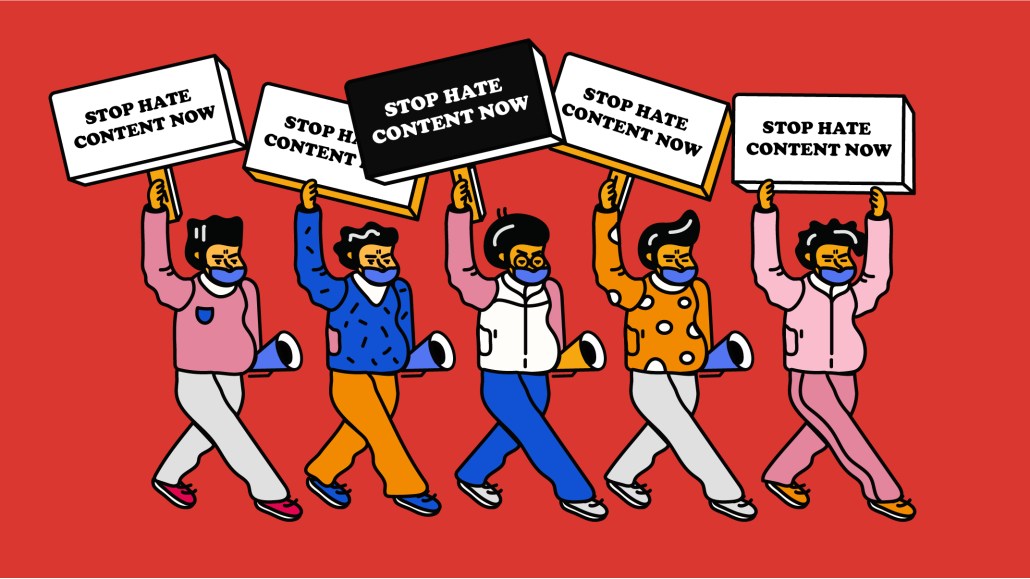Secure your place at the Digiday Media Buying Summit in Nashville, March 2-4
Advertisers were cutting their Facebook ad spending well before the boycott began

Boycott or no boycott the biggest Facebook advertisers were always going to spend less on the platform in 2020.
Advertisers of all sizes have paused ad campaigns on Facebook, either temporarily or indefinitely over the amount of hate speech on the social network. In doing so, many of the advertisers including Pernod Ricard and Patagonia are using the hiatus to broadly review media buying strategies, particularly on Facebook. Some, however, were well into the review process before the boycott hit.
More than half (11) of the 20 largest Facebook advertisers to have paused ad spending have been reducing the amount they spend in the U.S. over the last two years. In 2018, those 11 advertisers spent a combined $825.8 million in advertising on the social network, per analytics firm Pathmatics.
In 2019, that figure was $417 million. That’s a 49% drop in ad spending over those two years, based on Pathmatics’ analysis of a panel of opt-in Facebook users and CPM calculations based on the social network’s publicly reported figures.
The biggest drop over those two years came from retailer Target. Between 2018 and 2019, its spending fell 67%, from $142.5 million to $46.4 million, according to Pathmatics. The smallest drop over the period was at Volkswagen. Its spending fell 7%, from $14.7 million in 2018 to $13.7 million a year later.
The cutbacks came in the same year that Facebook tweaked its algorithm to favor content from friends and family over news articles and promoted posts from advertisers.
The tweak throttled the number of ad impressions available on the social network and consequently made competition for marketing space more intense, driving up costs. This happened around the same time that Facebook limited targeting features on the platform, which reduced the number of audiences available and also subsequently contributed to rising costs.
“The main problem advertisers have been facing in the last two years as it relates to Facebook, and other social media platforms, is that there is too much reliance on the platform itself and when the rules change (as we’ve seen in recent weeks for Facebook), advertisers then need to quickly adjust and adapt their strategies to coincide with those changes,” said Jeff Kupietzky, CEO of ad tech vendor PowerInbox’ Insights.
Microsoft, for example, bought $146.9 million worth of ads on Facebook ads in 2018, up 48% from the 76.3 million it spent the year prior, per Pathmatics. In 2019, however, spending on the platform dropped 21% to $115 million. The steady decline in spending over those two years foreshadowed the advertiser’s decision to suspend advertising on Facebook and Instagram in the U.S. in May, per an Axios report that Microsoft confirmed.
Even those nine advertisers that did increase spending on Facebook in 2018 and 2019 look set to cut back in 2020, according to Pathmatics. Between 2018 and 2019, Starbucks dialed up spending on Facebook, from $51.6 million to $94.9 million. In 2020, the advertiser’s spending is set to dip to $19 million, per Pathmatics. That’s a 79% year-over-year drop.
“As a brand, if I believe my core consumer still exists on Facebook, is it best to either distance or disassociate myself to avoid any adverse consumer backlash from appearing complicit with Facebook’s content policy decisions,” said Brian Leder, president of media agency Ramp97.
That there were advertisers actively pulling media dollars from Facebook prior to this month’s boycott spotlights underlying tensions between marketers and platform. When the #StopHateForProfit campaign launched last month, advertisers like The North Face and Patagonia backed the plan to defund Facebook until stricter policies are put in place to stop hateful, violent, or racist content from being shared.
Despite hundreds of advertisers backing the boycott since then, very few have committed to a permanent exit from the platform. In many ways, the response from big advertisers has been less about hurting Facebook’s financially, and more about trying to reassert influence over a business that hasn’t been as responsive to their needs as other online partners.
“For a long time, the lure of a logged-in, addressable platform with incremental audiences was enough to make the pain of Facebook not allowing an advertiser to take its learnings elsewhere worthwhile,” said Kerel Cooper, svp of global marketing at ad tech firm LiveIntent.
“This boycott may be the leverage to give advertisers what they want: data to flow to them, not away from,” said Cooper. “And it might be achieved under the guise of demanding a platform with less hostile content for minorities.”
More in Media

From feeds to streets: How mega influencer Haley Baylee is diversifying beyond platform algorithms
Kalil is partnering with LinkNYC to take her social media content into the real world and the streets of NYC.

‘A brand trip’: How the creator economy showed up at this year’s Super Bowl
Super Bowl 2026 had more on-the-ground brand activations and creator participation than ever, showcasing how it’s become a massive IRL moment for the creator economy.

Media Briefing: Turning scraped content into paid assets — Amazon and Microsoft build AI marketplaces
Amazon plans an AI content marketplace to join Microsoft’s efforts and pay publishers — but it relies on AI com stop scraping for free.








